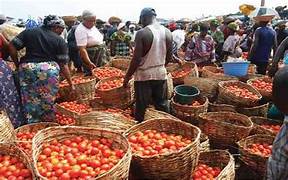Traders and mechanics lament multiple taxation but FIRS plans tax net expansion
By Jeph Ajobaju, Chief Copy Editor
Some traders, motor vehicle and motorcycle mechanics, and other artisans across the country have complained about multiple taxation which cost them a total N167.45 billion between the first quarter of 2022 (Q1 2022) and Q1 2023, even as Abuja plans to capture more traders and artisans in the tax net.
The tax was raised from Value Added Tax (VAT) and Company Income Tax (CIT), according to investigation by The PUNCH.
Federal Inland Revenue Service (FIRS) data shows CIT is a 30 per cent tax on the profit of companies and VAT is a 7.5 per cent consumption tax paid when goods are purchased and services rendered to the final consumer.
The treasury raised N96.96 billion from VAT and N70.49 billion from CIT from wholesale and retail trade and repair of motor vehicles and motorcycles between Q1 2022 and Q1 2023.
__________________________________________________________________
Related articles:
Nigeria’s tax-to-GDP ratio shoots up to 11%
NBA to challenge in court new vehicle tax to raise federal revenue
Abuja angling for N124b import tax revenue yearly to fund institutions
__________________________________________________________________
Breakdown of VAT payment
According to reporting by The PUNCH, below is the break down of VAT traders and mechanics paid between Q1 2022 and Q1 2023:
- Q1 2022 – N14.32 billion
- Q2 2022 – N16.21billion
- Q3 2022 –N17.31billion
- Q4 2022 – N19.99billion
- Q1 2023 – N29.14billion
VAT paid by the groups grew by N14.82 billion or 103.49 per cent between Q1 2022 and Q1 2023.
Breakdown of CIT payment
Below is the break down if CIT traders and mechanics paid between Q1 2022 and Q1 2023:
- Q1 2022 – N8.3billion
- Q2 2022 – N19.81billion
- Q3 2022 – N14.46billion
- Q4 2022 – N17.89billion
- Q1 2023 – N10.43billion
CIT paid by the groups shot up to N2.13 billion or 25.66 per cent between Q1 2022 and Q1 2023.
FIRS phases out multiple taxation, extends VAT to market traders
The FIRS announced in June multiple taxation is being phased out and the tax collector has included the Market Traders Association of Nigeria (MATAN) and other informal sector operators in the VAT pot to raise tax yield.
MATA has a membership of over 40 million traders across the country and is the biggest player in national market space.
Details of the FIRS/MATAN partnership were disclosed at a stakeholders’ engagement on the VAT Direct Initiative (VDI) held in Lagos, according to a statement issued by Johannes Wojuola, Media Aid to FIRS Chairman Muhammad Nami.
The event was attended by representatives of the FIRS, JTB, banks, Iyalojas of markets from across the country, members of various trade clusters, and representatives from all major markets nationwide.
The FIRS will collaborate with MATA on technology to enumerate traders for collecting and remitting VAT to the FIRS, with hopes of it leading to an expansion of the tax net and more revenue for the federation.
Nami explained at the event the initiative is crucial to revenue generation and will also help eliminate multiple taxation, especially in the informal sector.
He said Abuja is concerned about the multiplicity of taxes, and the FIRS and the Joint Tax Board (JTB) are working on ways to tackle the challenge.
Partnership lays foundation to eliminate multiple taxation, extortion
According to him, the partnership laid a very good foundation for the government to address multiple taxation and extortion by tax officials, tax agents and touts in markets.
“One important area of our collaboration is the issue of providing adequate security in the markets. We are aware of the challenges that you have faced in the past with miscreants, self-imposed tax collection agents, and touts,” Nami said.
“I want to assure you that as part of this initiative, we will be collaborating with the relevant security agencies particularly the Nigeria Police Force to tackle all forms of touting and illegal tax collection by miscreants and keep them away from your markets.
“The successful outcome of this collaboration and additional revenue accruable will have multiplier effects on all sectors of the economy as the government will have more revenue to provide the needed social amenities and infrastructure in critical sectors.
“An improved VAT collection will improve the revenue base of the states and local governments at the sub-national level and the citizens will be the ultimate beneficiaries.
“This initiative is very important to the government, particularly at this moment of dwindling revenues from the petroleum sector and, therefore, requires that we put all hands on deck and optimally explore all available opportunities.
“The administration of VAT in the informal sector is characterised mainly by a low level of compliance and a lack of awareness in terms of obligation and liability. It, therefore, becomes necessary to leverage the MATAN platform to positively change the status quo.”
To ensure transparency and accountability of the project operation, Nami disclosed, a monitoring and evaluation team comprising both organisations would be formed.
He also unveiled an identity card to be given to each trader upon enumeration. The card contains tax identification number and other personal details.














